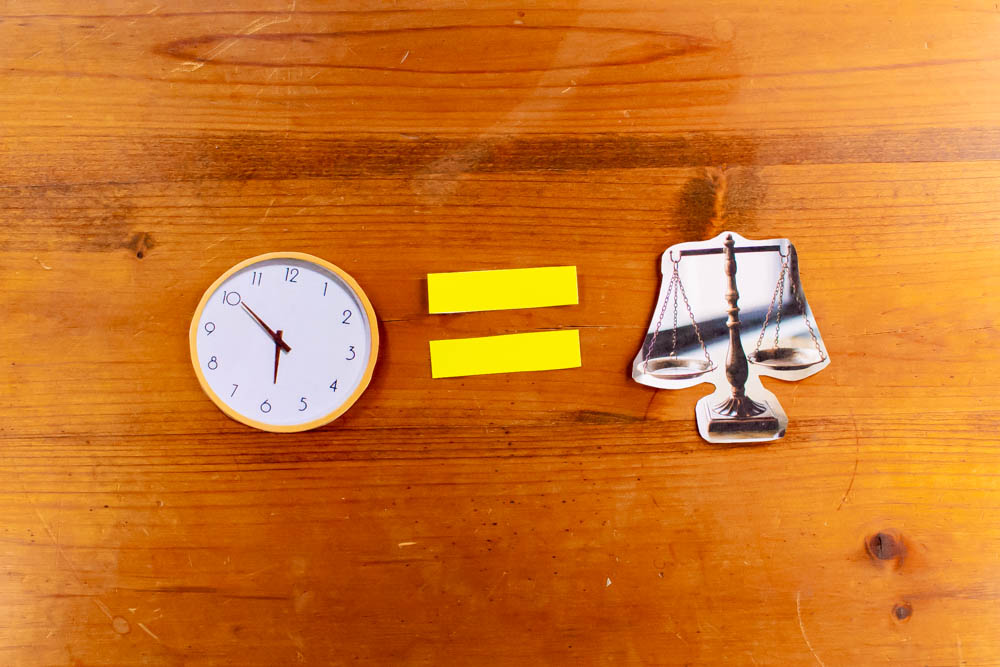
Share this Post
“Live, Laugh, Love” has gone down in infamy as an example of why Christian bookstores no longer exist. People are tired of trite Christianity with its empty platitudes. I’d like to present a new trifecta. This one isn’t a meaningless phrase. Instead, it serves as a reminder of how our media digestive tract works.
Look ⇨Love ⇨ Live
⇨ The media we consume dictates what we think about.
⇨ What we think about determines our values. (What we love)
⇨ Our values influence the way we live.
None of these statements are terribly controversial. But when we condense them down to: The media we consume influences the way we live, I think we all get a little uncomfortable.
See, we know the kind of media we consume, and we think there’s a big difference between the lives of celebrities/influencers and ourselves. Perhaps we envy their riches and glamour, but we’re better people than they are. . . right?

Maybe that’s true, but let’s pursue this line of reasoning anyway.
How does what I read, watch, and listen to affect my life in any kind of meaningful way? Well, It’s tricky. Just because I watch a movie with violence doesn’t mean I’m going to stab somebody. Just because I read a book with a graphic sex scene doesn’t mean I’m going to act it out in real life—after all, I have self-control and morals and all that good stuff standing in the way. . . riiiiiight?
Breaking It Down
Let’s take another look at each of the three statements at the beginning of this post. Do you disagree with any of them? If all three of those statements are true, we logically have to conclude that our media diet is regurgitated through our actions in some way.
⇨ The media we consume dictates what we think about.
This is just plain sense. When we watch a movie, we are thinking about it—usually for at least a couple hours afterward. We analyze the plot. We decide which characters we like. We form an opinion on whether or not we enjoyed the movie as a whole.
We do this in smaller ways when we watch videos on YouTube, Instagram or Snapchat. We even do this when we read books, listen to podcasts, and interact with our friends.
⇨ What we think about determines our values.
If you disagreed with any of these three beginning statements, it’s probably this one. Let me simplify things a little. If you value friendship, you spend time with your friends. If you value football, you spend time either playing or watching it. Just as our values determine what we spend time on, what we spend time on reveals our values. Makes sense, right?

⇨ Our values influence the way we live.
Once we get this far, there’s only one obstacle left. When we talk about values (plural) we tend to mean moral values. But our values are really no different from the things we value. If family, church, God, friends, video games, and social media are all things we value by spending time on them, they compose our system of values.
For example, if honesty is one of your values, that means you spend much more time being honest than you do being dishonest. If family is one of your values, it means you spend more time with family than other things that you value less.
So does this mean that if we value our relationship with God, we should be thinking about him all the time?
What I Don’t Mean
I want to be careful in what I say next. I don’t want to sound like I’m advocating for a life of isolation from culture. I’m passionately against that line of reasoning. Biblically, we as Christians are called to make a profound influence on the world around us. We have limited impact on the world if we know nothing about the world or spend no time at all doing worldly things. Anyone who says otherwise is naive.
But that doesn’t mean we should go behind our parents backs to watch movies they’ve told us not to. While you live under your parents’ roof, they need to be obeyed. They care about you and want you to have a healthy relationship with media. Chances are, they don’t want to cut out all your fun, but instead teach you healthy boundaries.
Certain worldly media, in controlled doses, is permissible and even necessary for the Christian to be “In the world but not of it” as we are called to do.

The Part Where I Say I Hate Scripture
So if watching secular movies is okay sometimes, what do we do with verses like this?
“Finally, brothers, whatever is true, whatever is honorable, whatever is just, whatever is pure, whatever is lovely, whatever is commendable, if there is any excellence, if there is anything worthy of praise, think about these things.”
Philippians 4:8
To be totally honest, I often despise this passage. Why? Because most of the media I love doesn’t look anything like this verse! At a surface glance, this verse represents everything I hate about Christian radio, fundamentalist Baptist churches, and Christian book stores. It feels like it carries a “Live, Laugh, Love” shallow Christianity sort of sentiment.
Why would I want to only think about God, happiness, and sunshine? Where’s the adventure, danger, and romance? Wouldn’t that require me to be fake and not my authentic self? I feel like I would be missing out on an awful lot of fun stuff!

First of all, this verse does not say we are supposed to think exclusively about such things. Second, If sunshine and happiness are what come to mind when reading this verse, my view of honor, purity, and excellence may be a bit simplistic.
Truthfully, some of my favorite movies like Lord of the Rings, Band of Brothers, and even Die Hard all exemplify some of the values mentioned in this verse. There’s heroism, sacrifice, friendship, and honor showcased in these movies. Of course, there are also some not-so-great elements in these movies. Brutal violence, betrayal, nudie posters, and infidelity. Does that mean I shouldn’t watch them? Not necessarily, but maybe. The portrayal of the evils and vices in these movies is key. Are they glamorized? Encouraged? Result in consequences? All of that is teaching us how to respond to such things in our own lives.
A Path Forward
So if the Bible doesn’t forbid us from watching certain kinds of media, where do we draw the line? It would be nice to have a clear border to not cross. If you still live at home, your parents may have strict rules and boundaries for the kind of media you consume. They often create black and white rules, because they know gray lines are easier for you to cross. If we humans are good at anything, it’s making excuses for ourselves.

Regardless of where the lines are drawn, we need to be honest with ourselves. We need to use wisdom.
Is the media we consume encouraging us to take sin lightly? Is it rewarding kinds of behavior that God calls wrong? Is it showing graphic violence or nudity that encourages me to fantasize about things I shouldn’t? If the answer to any of these questions is yes, then we should severely limit or eliminate this kind of media from our diet.
The Good Part
Up til now, we’ve mostly been talking about what kind of media to avoid, but even more important than eliminating bad media from our lives is including good stuff. We don’t become physically healthy only by limiting our candy intake, but by replacing it with good, healthy food.
Simply put, the worldly media we take in cannot dwarf the godly media we digest without it also endangering our values.

So what is godly media? Scripture obviously fits the bill, but there are other things that can and should supplement our scripture intake. Family or friends that encourage you in your walk with God. A church that cares about you and faithfully teaches the Bible. Books and movies that not only display godly values, but are also free of sinful fantasies. Devotional material that points our attention to God.
What Media is okay for Christians?
If this sounds like an impossible or boring way to live, I don’t blame you. There’s a lot of cheesy and trite Christian media out there. I’m not encouraging you to place yourself in a Christian bubble and never leave, but instead to be mindful of the kind of media you consume. After all, we’ve established that it’ll affect the way you live—sometimes unconsciously.
In future posts, we’ll unpack and evaluate specific elements of pop culture and formulate a plan on how we can best interact with them in a godly way.
In the meantime, stop and think about what you spend your time looking at. It might just change your life.
Share this Post
